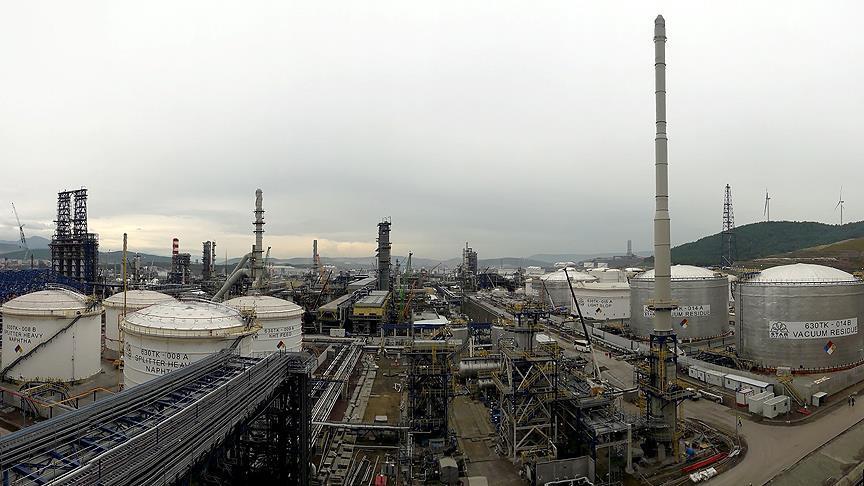Two competing price mechanisms - oil indexation and hub-based pricing are contributors to shaping the global gas market. The debate over which indexation can better represent the fundamental values of the gas market continues to be a subject for discourse not only throughout academia but also among industry practitioners
By Ersin Merdan*
Two competing price mechanisms - oil indexation and hub-based pricing are contributors to shaping the global gas market. The debate over which indexation can better represent the fundamental values of the gas market continues to be a subject for discourse not only throughout academia but also among industry practitioners. As many studies and industry practitioners suggest, oil indexation is relatively easier to implement and over many decades has been used as an effective tool for pricing natural gas. However, it has failed to embody the fundamental values of the gas market and has paved the way for the development of hub pricing, which adopts less extreme gas price fluctuations.
Oil indexation began in the 1960’s in the Netherlands. It is based on netback value calculated by taking the value at the point of sale minus the profit margin and costs incurred for transportation. Oil indexation is a well-established pricing methodology, which has been used for many decades around the globe. Nevertheless, oil indexation applied to prices in the natural gas market has not been accurate because of the fundamental fact that crude oil is not the perfect substitution for natural gas as both are two distinct and separate markets.
Hub-based pricing is an instrument used interchangeably with spot or gas on gas competition, and has been successfully implemented in the U.S. The Henry Hub has acted as the major apparatus for gas on gas pricing since its establishment. Its successful implementation has ensured that Europe started to push for adapting spot pricing in LNG and for gas on gas competition through the Dutch Title Transfer Facility (TTF) Virtual Trading Point and via the U.K.’s National Balancing Point (NBP). In the East Asian market, the foundation of hub pricing has started with an expanding LNG market. In Japan, South Korea and Singapore, LNG spot market and gas exchanges have been on a good growth track in recent years.
There are clear divisions between the three major gas markets around the world. While the U.S. market purely represents the hub pricing mechanism, the European market uses both oil indexing and gas on gas competition, whereas the Asian market is essentially linked to oil pricing, but is now only beginning to see the pricing benefits of the spot market. The pricing trends of energy commodities, including oil and natural gas, behave similarly to financial assets. Speculation and asset bubbles can occur in these markets from time to time, potentially causing huge price deviations, and resulting in unexpected price dynamics.
Such price shocks support the view that pricing instruments used in the oil market are not compatible with those used in the gas market. In particular, substantial price gaps between the U.S., European, and Asian gas markets have been used as the main argument of debate on how long oil indexation can be used in pricing natural gas. Despite the growth in hub-based pricing, proponents of the oil price mechanism suggest the best remedy for gas market pricing is still indexing gas to oil. This argument is based on the belief that oil indexing is the best remedy for market failure. Advocates of oil indexation argue that oil-based pricing works as a price anchor and any difficulties in the gas market can be overcome because of supply and demand limitations in this market, although market failure cannot be ruled out in the long run.
Above all, oil index supporters also argue that the oil market is so big that it would be too unwieldy to manipulate given its size whereas they contend this is not the case for the gas market. A better market mechanism would have to have a more efficient design that is less prone to asset bubbles. A more efficient mechanism would also have to better reflect the fundamental values of the market with the ability to quickly respond to needed changes and trends, and in the case of inefficiencies and market disruptions, the consequent speculation would need to be easily observed.
The advocates of hub pricing believe that gas on gas competition reflects the fundamental values of the market mechanism, and therefore, better shapes the demand and supply side of the equation. By working more efficiently within its own dynamics, gas on gas competition is less prone to oil market volatility and is set to have fewer price bubbles. However, the process of adapting to a hub price mechanism necessitates the creation of a functional hub-based pricing mechanism, which is costly and lengthy to adopt. While the efficient Henry Hub has paved the way for successful gas market pricing mechanisms around the globe, the relatively newly emerging European hubs, such as the Dutch TTF, the U.K.’ NBP or the Net Connect Germany, are closely followed by the Asian gas market, which is observed in their spot market transactions. The use of hub-based pricing in Europe through virtual hubs (TTF NBP) has proved effective when compared with long-term oil-indexed contracts.
Recent oil and gas market developments have raised the question of the suitability of pricing mechanisms and have opened up for debate whether oil indexation or gas on gas competition better reflects the fundamentals of the modern gas market. Gas has been characterized as a better fit for hub-based pricing compared to oil indexation allowing for more efficiency, and easier and quicker responses to changes in market fundamentals.
With oil-based pricing, speculation, irrational investment patterns, and persistent price deviations are clearly reflected in the natural gas market despite the structural differences between the two markets. Since these two commodities are not compatible with each other, a new approach, which gas on gas competition incorporates, is required to keep at bay the destructive bubbles arising from oil price hikes.
*Ersin Merdan holds an MSc in Eurasian Political Economy & Energy from King’s College London and also an MA in European Studies from Sabancı University.
(Anadolu Agency)




